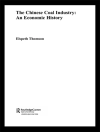Completely updated and revised, this bestselling book continues to explain the growth and developmental processes involved in the formation of vegetables. Since the publication of the successful first edition significant discoveries, particularly in the area of molecular biology, have deepened and broadened our knowledge and understanding of these processes. This new edition brings the topic up-to-date and is presented over two sections: the first provides general knowledge on germination, transplanting, flowering, the effects of stress and modelling, whilst the second section details the physiology of specific crops or crop groups.
The second edition of The Physiology of Vegetable Crops:
· contains two new chapters looking at stress effects on vegetable crops with a particular emphasis on climate change and models of vegetable growth and development
· is fully updated to reflect recent discoveries and the advent of new production techniques such as growing in artificial environments
· provides enhanced understanding of the growth and function of 18 different vegetable crops
· is heavily illustrated and published in full colour throughout
With contributions from renowned international experts, this is an essential resource for horticultural researchers and extension educators and consultants, as well as a reference for students and researchers in vegetable production, plant breeding, entomology and plant pathology.
About the author
Haim obtained his academic education in plant physiology and genetics at the Hebrew University of Jerusalem. He worked as a Postdoctoral Scientist at The John Innes Institute (Norwich England) and at the Wageningen Agricultural University (Holland) before recruited as a staff member at the Hebrew University of Jerusalem. He spent three sabbaticals at Duke University Medical Centre, Department of Biochemistry. In addition to research, teaching, and supervision, Haim served as elected Head of the Department of Field and Vegetable Crops, elected Head of Faculty Research Committee, elected Faculty Dean and elected University Rector. His research interests include physiology of vegetable crops with special emphasis on flowering, setting and seed production; Physiology and potato breeding. Haim shared the idea and actual introduction of genes for long keeping in tomatoes, the development and introduction of cherry tomatoes as a standard commodity, and later that of cluster tomatoes. He headed a leading ream of plant breeders and released more than a hundred salad and cherry tomato hybrids, as well as short-day onion hybrids, short day seed propagated shallot hybrids, and currently he jointly leads a large-scale garlic breeding program aiming at seed propagated hybrid garlic. He supervised about 80 graduate students, published about 150 scientific papers, chapters in books and edited books on alliums.












